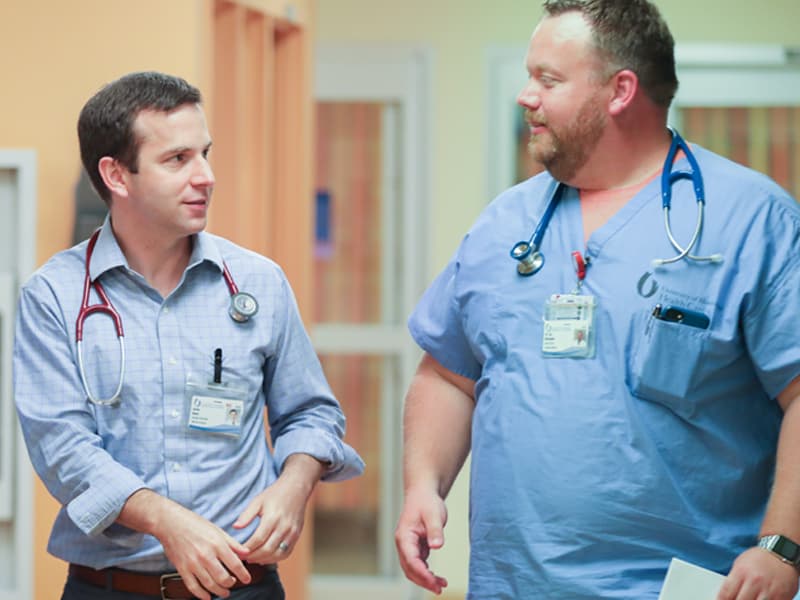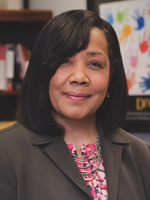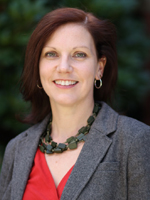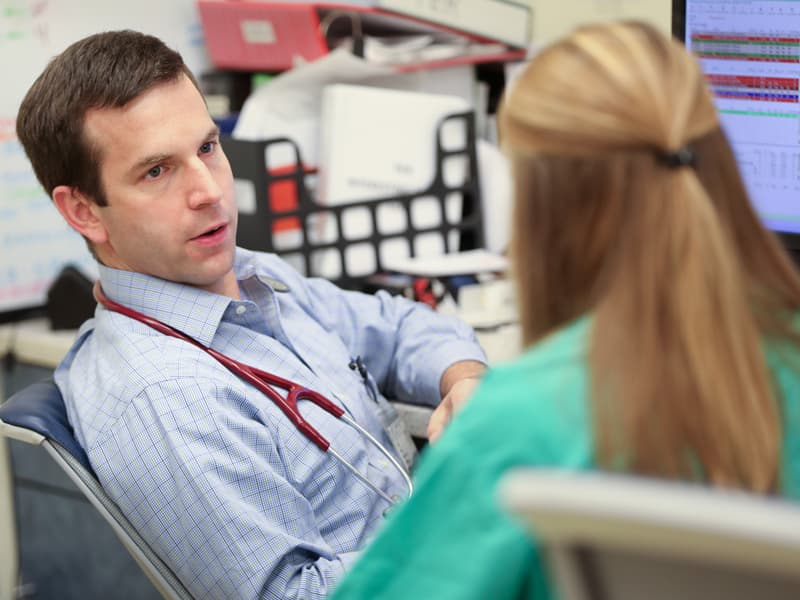UMMC participating in national program to eliminate child hunger

Come January, some parents of children seen in the University of Mississippi Medical Center’s Pediatric Emergency Department will be asked a revealing, two-pronged question – and given help, depending on their answers.
The verbal queries: "In the last 12 months, have you worried about food in your household running out before you have money to buy more?" And, "Within the past month, did food run out, and you didn’t have money to buy more?"
Their answers will add to a critical pool of data that will be used to gauge food insecurity impacting children treated in the Pediatric ED. Those numbers represent just one factor affecting child health outcomes, and one more area where policy influence is needed to improve their lives.

UMMC has been chosen as a new expansion site for Children’s HealthWatch, a Kellogg Foundation-supported project that collects data – typically in pediatric emergency rooms – to fuel research into factors that impact child health outcomes. Dr. Bettina Beech, professor of population health science and pediatrics and dean of the John D. Bower School of Population Health, and Dr. Justin Davis, assistant professor of pediatric emergency medicine, are co-principal investigators for the local research project.
Being named an expansion site is affirmation of the Medical Center’s research prowess and the Kellogg Foundation’s desire to target its grant dollars where they have the chance to effect change, Beech said. “Here, we have plenty of opportunities to make a difference,” said Beech, also executive director of the Myrlie Evers-Williams Institute for the Elimination of Health Disparities at the Jackson Medical Mall.
Mississippi ranks last in the nation in child food insecurity, or what the federal government defines as limited or uncertain availability of nutritionally adequate and safe foods, or the inability to get nutritious food because of a lack of transportation, money or sheer availability.
Children’s HealthWatch is a Boston-based nonpartisan network of pediatricians, public health researchers and children’s health and policy experts that gathers data from hospitals in seven cities: Boston; Baltimore; Little Rock, Arkansas; Minneapolis; Philadelphia; and new sites Jackson and Battle Creek, Michigan.

It’s a unique organization focused on improving the health and development of all children, particularly young children who often aren’t included in public policy discussions, said Stephanie Ettinger de Cuba, the nonprofit’s executive director. “We’re trying to bring together science and policy in an attempt to allay hardships among families,” she said.
UMMC was chosen as an expansion site for multiple reasons, she said. “We don’t have anyone who focuses on population health like Dr. Beech, and she has an incredible advisory board. And Dr. Davis’ interest in driving more research … They’re a really impressive pair,” de Cuba said.
Children’s HealthWatch also considered needs in the community, such as not being able to afford food, housing and utilities. Beech and Davis “know the neighborhood disparities,” de Cuba said. “We can hopefully drive some change with the combination of their experience and expertise.”
Trained research assistants will use a random selection process to approach parents in UMMC’s Pediatric Emergency Department and confidentially ask them to join the research cohort, Davis said. The research assistants will complete a minimum 800 interviews annually. “What’s exciting for us is that we feel like our population in the emergency department will help us better understand social determinants” that relate to hunger, Davis said.
Families coping with food insecurity will receive information on local food banks and other resources, Beech said.

Because UMMC has the state’s only children’s hospital and Pediatric Emergency Department of its type, Davis said, information gleaned will be unique. “This will give us access to data that we couldn’t get locally,” he said. “It will give us the ability to understand where our children are at, and what we can do to help them.”
Data will be recorded electronically and securely and will be used in different forums, such as policy advocacy and other work that could improve children’s health outcomes, Davis said.
One of the most impactful studies performed by Children’s HealthWatch, Beech said, was development of the trademarked, two-question Hunger Vital Sign screening tool used by all its sites. “Typically, those questions aren’t asked in a clinical system,” Beech said. “UMMC is moving in a very progressive direction to consider factors not addressed in the usual health care situation so that we can address the factors that affect health outcomes.”
The Hunger Vital Sign screen also is used at UMMC’s Adolescent and Young Adult Health Clinic at the Jackson Medical Mall. The goal: identify social, economic and environmental factors that leave children hungry, sick or continuously unwell, and give the family resources to break that cycle.
UMMC won’t just collect local data for use by Children’s HealthWatch. “We take part in the research as well, and we publish it with the whole Children’s HealthWatch group,” Beech said. “We can also include questions of local interest that other sites might not include.”
“What we’re moving to is a deeper dive on the questions,” de Cuba said. “As Dr. Davis sees a trend in the emergency room, or Dr. Beech sees things in the community, they can generate local data and be able to comment on local issues."
Beech and Davis are pondering their own questions addressing health literacy and the concept of numeracy, or the ability to reason and apply simple numerical concepts. One example is understanding labels on food or over-the-counter drugs. “Can you figure out how many calories are in one serving based on the amount of food?” Beech asked. “How much medication should be used for a child of a certain weight?
“It’s not just ‘Can I read?’ but ‘Do I understand very complex information?’” Beech said. “We’ve found that is an independent factor, regardless of someone’s education level.”
Another potential question would gauge perceptions of crime and how it influences behavior in terms of health, Beech said. “If you’re concerned about criminal activity in your neighborhood, will that impact the amount of exercise you get?” she asked.
“We don’t plan to stop there,” Davis said. “We will harness data to help address interventions that we can employ.”


